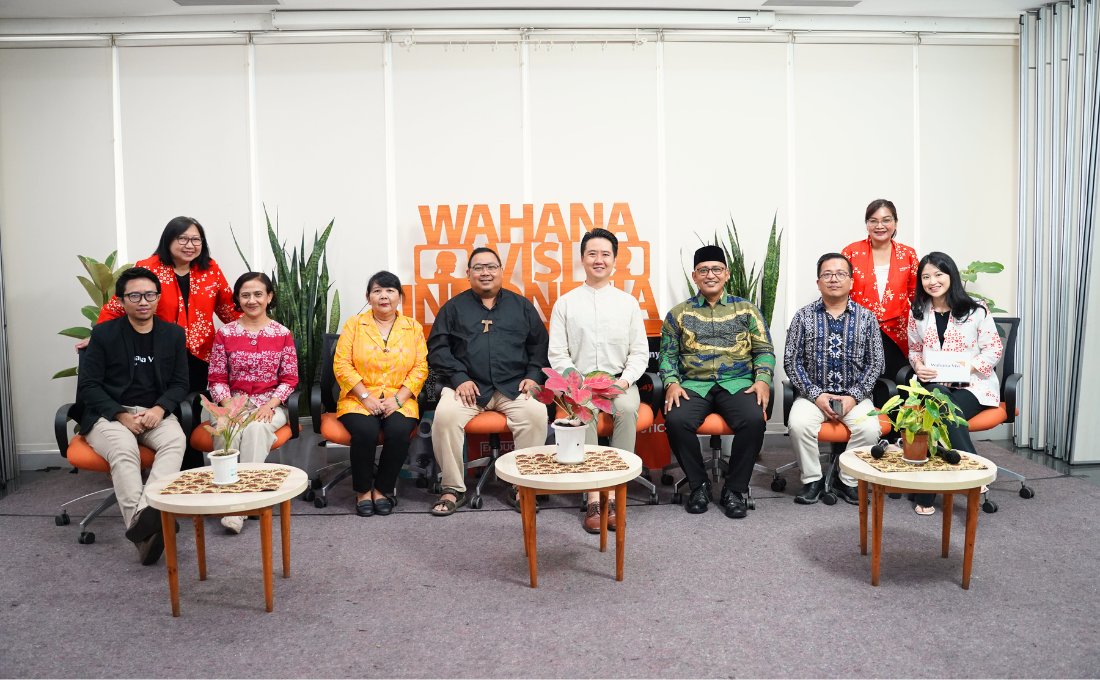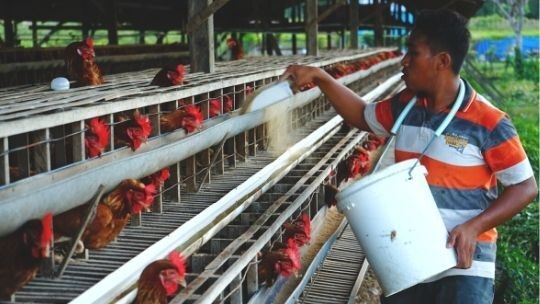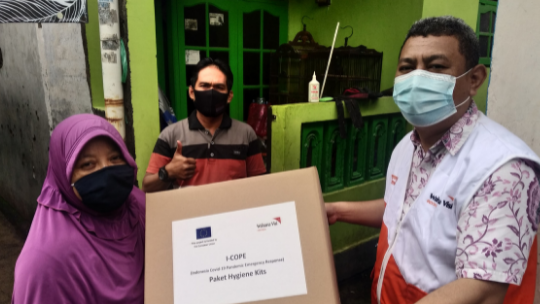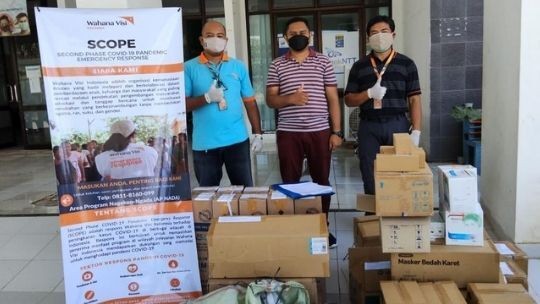Religious Leaders Gathering on Echoing Climate Adaptation

Amidst the diversity of ethnicities, religions, and cultures, Indonesia stands firm with the spirit of Bhinneka Tunggal Ika—unity in diversity. This is evident in the six state-recognized religions—Islam, Catholic, Christian, Buddhism, Hinduism, and Confucianism—coexisting peacefully. Despite differing beliefs, religious leaders respond to a common call of faith: to protect the earth so that it remains a good, safe, and hospitable home where children can grow up in peace and hope.
The climate crisis is not merely a scientific issue; it has become a moral and spiritual calling. "Climate change is irreversible. Children born after 2020 will likely face severe climate challenges before 2100. Fish and corn consumption will become rarer as production decreases by 35%," stated Ngurah Agung, Climate Change and Adaptation Specialist from Wahana Visi Indonesia, during the Community Connect event on May 15, 2025, titled "The Role of Religion in Facing Climate Change."
The event was attended by representatives from Indonesia's six official religions:
-
Dr. H. Muh. Munif Godal, MA, representing the Majelis Ulama Indonesia (MUI) of Palu City
-
Antonius N. Bimo P., OFM, representing the Konferensi Waligereja Indonesia (KWI)
-
Samanta Surya, M.Sc, representing the Parisadha Buddha Dharma Niciren Syosyu Indonesia (NSI)
-
Ni Made Jendri, S.Km, M.Si, representing the Parisada Hindu Dharma Indonesia (PHDI) Pusat
-
Js. Ponnie Wijaya, S.P, representing Perempuan Khonghucu Indonesia (PERKHIN)
-
Pdt. Darwin Darmawan, representing the Persekutuan Gereja-gereja di Indonesia (PGI)
These religious leaders were present not only to voice their faith's teachings on climate change but also to bring the spirit of protecting the earth and hope for future generations.
Dr. H. Muh. Munif Godal from the Majelis Ulama Indonesia of Palu City reminded, "If religious leaders do not play a positive and swift role in the current situation, it will leave something disheartening for our children. Climate change needs to be slowed down, while humanity's role and responsibility to preserve the ecosystem is a mandate. Therefore, it is very important to teach or disseminate this."
Religious leaders play a key role in raising awareness and mobilizing communities to begin climate adaptation actions. These efforts range from the family level to policy implementation.
Meanwhile, Romo Bimo from the Konferensi Waligereja Indonesia emphasized, "This earth is our common home; not only poor countries must protect it, but also developed countries. If this trend continues, we will witness serious climate change. This is a global problem with cross-sectoral impacts."
During this occasion, religious leaders also invited all parties—from various levels of government, humanitarian organizations, private companies, to academics—to collaborate to produce tangible steps that have a positive impact on the earth. The hope is that through strategic and focused collaboration, change will not only increase understanding but also manifest in daily practices.
Ni Made Jendri, S.Km, M.Si, Secretary of Health and Social Humanity for PHDI Pusat, stated, "The effort needed for this issue is how communities can adopt concepts passed down by ancestors into their daily lives. In Bali, we know the subak planting system, which preserves the environment, and this needs to be continued." Being based in Bali made Jendri realize how much ancestral heritage needs to be re-implemented.
If the urgency of this issue is ignored, the future of Indonesian children is threatened. Reverend Darwin Darmawan echoed the term "ecological apocalypse" happening before the actual one. "This will surely happen if we do nothing. Building a lifestyle that is not greedy, not consumptive, and not self-centered. Our problem is not in the normative realm but whether personally there is a desire to change or not," he explained.
Community Connect serves as a forum for interfaith discussion and meetings to realize the dream of Indonesian children living life to the fullest. The immense urgency of climate change's impact on children's well-being motivates religious leaders to unite, move together, and share best practices for the future of the nation's children.
Author: Mariana Kurniawati (Communication Executive)



